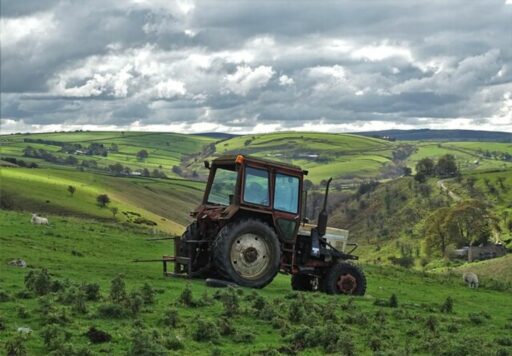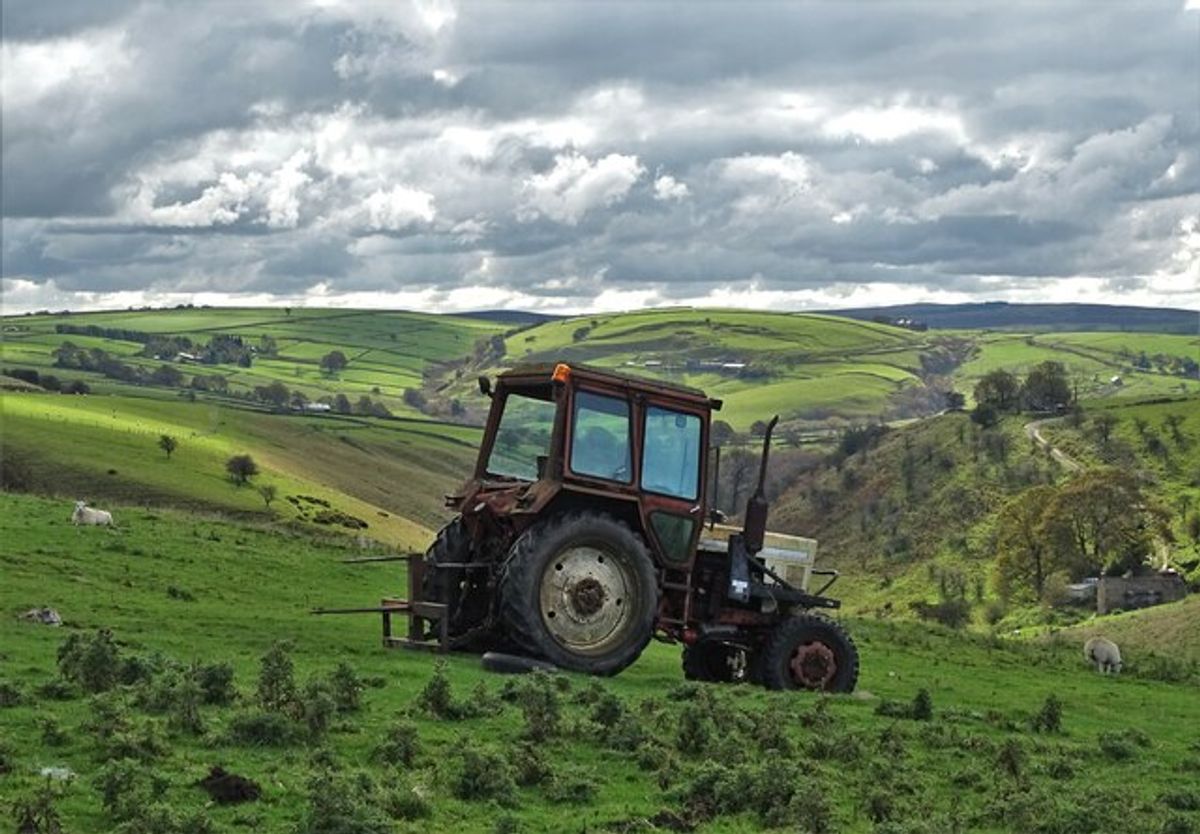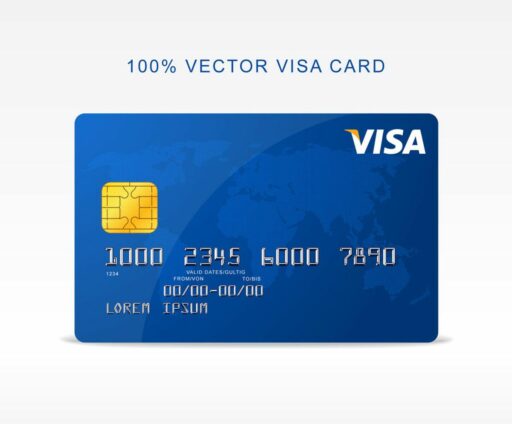Securing tractor financing can be a daunting task, especially for individuals with bad credit. Tractors are vital for agricultural operations, but their high cost makes financing necessary for many farmers. This article explores various tractor financing options and strategies for overcoming credit challenges, providing insights into specialized financial solutions tailored to agricultural needs, and answering frequently asked questions to help individuals with bad credit navigate the complexities of securing the necessary funding for their farming equipment.
Key Takeaways
- Tractor loans are available for both new and used models with varying interest rates and terms, including options like Rent-to-Own, Lease, CHP, and Chattel Mortgage.
- Credit score impacts tractor financing options, but alternatives such as low doc and no doc loans from non-bank lenders can accommodate those with bad credit.
- Specialized financial solutions like machinery and equipment loans, refinancing, and bad credit solutions cater to the unique needs of the agricultural sector.
- New agricultural ventures with limited credit history can consider DSCR loans based on projected income, or seek credit through brokers and non-bank lenders.
- Understanding the terms and conditions of different credit options and best practices for managing farm operation vehicle financing is crucial for responsible borrowing.
Understanding Tractor Financing Options


Comparing Loans for New vs. Used Tractors
When considering tractor financing, it’s crucial to understand that while the same credit products are often available for both new and used tractors, the terms and conditions may differ significantly. The interest rates, loan terms, and other conditions are typically adjusted based on the age and condition of the used tractor, as assessed by the lender.
- Rent-to-Own
- Lease
- CHP (Commercial Hire Purchase)
- Chattel Mortgage
These financing options can cater to different needs and preferences, with fixed interest rates being a common feature, ensuring that payments remain consistent throughout the loan term. It’s important to use tools like equipment loan comparison calculators to explore how monthly repayments may vary across lenders.
When selecting a tractor loan, consider not only the initial cost but also the long-term financial implications of the chosen financing option.
Inclusion of Accessories in Tractor Loans
When financing a tractor, it’s common for farmers to need additional equipment to fully operationalize their machinery. Lenders often allow the inclusion of accessories in the same loan as the tractor, provided they are purchased at the same time and from the same supplier. This can streamline the financing process and potentially offer more favorable terms than financing each item separately.
The ability to bundle accessories with tractor loans simplifies the acquisition of essential farming tools, making it a practical choice for many agricultural businesses.
Here’s a quick overview of what can typically be included:
- Attachments like loaders, backhoes, and mowers
- Implements such as plows, harrows, and seeders
- Upgrades for performance or comfort, like GPS systems or better seating
Remember, the inclusion of accessories is subject to individual lender approval, and conditions may vary. It’s important to discuss your specific needs with your lender to ensure that all your equipment can be financed together under one loan.
Credit Products Available for Farming Equipment
When it comes to financing farming equipment, operators have a variety of credit products to choose from. Leasing, Rent-to-Own, Commercial Hire Purchase, and Chattel Mortgage are some of the most common options available. Each of these products offers different benefits and terms, allowing for flexibility based on the specific needs of the farming business.
For those starting a new horticultural operation, traditional lending criteria can pose a challenge. However, low doc and no doc credit options provide a solution. These are often accessible through brokers and non-bank lenders, catering to businesses that may not have a long history of trading or robust financial records.
It’s important to consider the terms and conditions of each credit product carefully. This ensures that the chosen financing option aligns with the cash flow and investment strategy of the farm.
Farm and Country Finance has introduced a new farm loan product that may be suitable for those looking to diversify their existing rural or farm business. This product is designed to accommodate scenarios where traditional accounting information may not suffice for bank requirements.
Overcoming Credit Challenges in Tractor Financing


Impact of Credit Score on Tractor Finance
Your credit score is a critical factor in determining the terms of tractor financing. Lenders use this score to assess risk and decide on the interest rates and loan terms. A higher credit score can lead to more favorable terms, while a lower score may result in higher interest rates or even loan denial.
- Credit Score for Tractor and Farm Equipment Finance: This specific score is crucial for individuals looking to finance agricultural machinery.
- Credit Score for Commercial Vehicle Loans: Similar to tractor finance, this score affects the terms for financing other commercial vehicles.
- Credit Score for Business Loans: A good score is beneficial for securing loans intended for business expansion or operational costs.
It’s essential to understand that your credit history reflects your financial responsibility. Improving your credit score can open doors to better financing options and terms. Start by managing existing debts wisely and exploring opportunities to demonstrate financial responsibility.
Alternative Financing for Bad Credit
Individuals with bad credit seeking tractor financing have alternative options beyond traditional bank loans. Credit unions and online lenders may offer more flexible terms and understand the unique challenges faced by those in the agricultural sector.
Options such as debtor invoice funding, equipment loans, and insurance premium funding can be tailored to suit the needs of farmers with less-than-perfect credit histories. These alternatives often require less stringent credit checks and may provide a viable path to securing necessary equipment.
- Debtor Invoice Funding
- Equipment Loans
- Insurance Premium Funding
- Sole Trader Loans
It’s important to approach alternative financing with a clear understanding of the terms and conditions, ensuring they align with your business’s cash flow and operational needs.
For those with adverse credit scenarios, such as mortgage arrears or court judgments, there are lenders who specialize in problem cases and offer sympathetic consideration. Competitive rates and flexible lending criteria, including low or no documentation loans, can help overcome the barriers to financing.
Navigating Low Doc and No Doc Credit Options
For individuals with bad credit, navigating low doc and no doc credit options can be a viable path to securing tractor financing. These options typically require less documentation than traditional loans, making them suitable for those with limited credit history or complex financial situations.
- Low doc loans may require some proof of income or assets but less than standard loans.
- No doc loans often do not require proof of income, but may come with higher interest rates to offset the lender’s risk.
It’s crucial to understand the terms and conditions associated with these loans, as they can vary significantly between lenders. Here’s a brief overview of what to expect:
When considering low doc or no doc options, be prepared for potentially higher costs in exchange for the convenience and accessibility they offer.
Remember, while these financing options can provide a solution, they should be approached with caution. It’s advisable to consult with a financial advisor to ensure that the loan terms are manageable and aligned with your long-term financial goals.
Specialized Financial Solutions for Agricultural Needs
Lease, Rent-to-Own, and Purchase Options
When considering how to finance a tractor, individuals with bad credit have several options that cater to different needs and circumstances. Leasing a tractor can be a viable option for those who prefer lower monthly payments and the flexibility to upgrade equipment regularly. On the other hand, rent-to-own agreements offer the opportunity to eventually own the tractor after a series of rental payments, which can be ideal for those who want to build equity over time.
Purchase options, such as taking out a loan for the full amount, may require a higher credit score or a substantial down payment. However, some lenders specialize in financing for individuals with less-than-perfect credit. It’s important to compare the terms and interest rates of different financing products to determine the most cost-effective solution.
While each financing option has its merits, the decision should align with your long-term financial goals and the operational needs of your farm.
Here is a list of common financing options for tractors:
- Chattel Mortgage
- Asset Lease
- Commercial Hire Purchase (CHP)
- Rent to Own
- No Deposit Financing
- Refinancing
Remember, it’s crucial to discuss with your accountant or financial advisor to understand the tax implications and financial benefits of each option before making a decision.
Insurance and Protection for Your Investment
Securing the right insurance for your tractor is as crucial as finding the right financing option. Insurance policies tailored to agricultural equipment can mitigate financial risks associated with accidents, theft, or damage. It’s important to understand the different types of insurance available and how they can protect your investment.
When considering insurance, evaluate the coverage options carefully. Here’s a list of potential coverages you might encounter:
- Liability Insurance: Covers damage or injuries caused by your tractor to others.
- Collision Insurance: Provides coverage for damage to your tractor from accidents.
- Comprehensive Insurance: Protects against non-collision-related incidents such as theft, fire, or natural disasters.
Remember, the cost of insurance should be factored into the total cost of ownership when budgeting for your tractor.
Choosing the right insurance involves comparing policies and premiums to ensure that you’re getting the best protection for your investment. Consult with insurance experts who understand the unique needs of the agricultural sector to tailor a policy that fits your situation.
Refinancing and Bad Credit Solutions
Refinancing can be a strategic move for individuals with bad credit looking to improve their financial situation. By refinancing existing tractor loans, borrowers may secure lower interest rates or more favorable terms, potentially reducing monthly payments and overall debt burden.
Options for those with less-than-ideal credit include:
- Seeking out specialized agricultural lenders
- Exploring online lenders that offer personal loans
- Considering secured loans, which may provide more favorable terms
It’s essential to obtain credit reports and provide necessary documentation to qualify for refinancing. Some lenders can process applications and deliver funds within 24-48 hours.
Remember, while refinancing can offer relief, it’s crucial to assess the long-term impact on your financial health. Always compare offers and read the fine print before making a decision.
Starting a New Agricultural Venture with Limited Credit History


Credit for Start-up Horticultural Operations
For individuals embarking on a new horticultural operation, securing credit is a pivotal step. Navigating the financial landscape with limited or no credit history can be challenging, but there are tailored solutions that cater to the unique needs of start-up agricultural ventures.
Options such as low doc and no doc credit products are particularly beneficial for those who may not meet traditional lending criteria. These products are often accessible through non-bank lenders and brokers, providing a viable pathway to financing for new operators in the horticultural sector.
It’s essential to carefully assess the various credit products available and determine which aligns best with your business goals and financial situation. Consulting with a financial advisor or accountant can provide clarity and guide you towards the most appropriate financing option.
When considering credit for your start-up horticultural operation, keep in mind the following points:
- The importance of a solid business plan to present to potential lenders
- The potential for higher interest rates due to perceived risk
- The availability of specialized credit products designed for agricultural needs
Remember, despite the hurdles, there are avenues to explore that can lead to successful financing of your horticultural venture.
DSCR Loans: Financing Based on Projected Income
DSCR loans offer a unique financing solution for individuals starting a new agricultural venture, especially those with limited credit history. These loans focus on the income-generating potential of the tractor or equipment rather than the borrower’s past credit performance. The Debt Service Coverage Ratio (DSCR) is a key metric used by lenders to assess the feasibility of the loan, ensuring that the projected income can adequately cover the loan repayments.
The advantage of DSCR loans lies in their ability to provide financing based on the future financial performance of the agricultural project, rather than solely on the borrower’s credit score.
To understand the eligibility for a DSCR loan, consider the following factors:
- Evaluate Monthly Income: Include all sources such as salary, business profits, and other income streams.
- Assess Existing Obligations: Calculate current debts to determine your debt-to-income ratio.
- Check Credit Score: Although less emphasized, it’s still beneficial to know your credit standing.
- Estimate Repayment Capacity: Factor in your monthly expenses to gauge your ability to manage loan repayments.
Securing Credit Through Non-Bank Lenders and Brokers
When traditional bank financing is not an option, individuals with limited credit history can turn to non-bank lenders and brokers for agricultural credit solutions. These entities often provide more flexible terms and may have less stringent credit requirements. Securing credit through these channels can be a viable alternative for starting or expanding your agricultural venture.
Non-bank lenders specialize in various credit products tailored to the agricultural sector, including loans for purchasing tractors and other essential equipment. Brokers, on the other hand, can help navigate the complex landscape of financing by connecting borrowers with the most suitable lenders for their specific needs.
It’s important to carefully evaluate the terms and conditions offered by non-bank lenders and brokers to ensure they align with your financial goals and capabilities.
Here are some steps to consider when seeking credit through non-bank lenders and brokers:
- Research and compare different non-bank lenders and the credit products they offer.
- Understand the eligibility criteria and whether additional security or a co-signer is required.
- Assess the flexibility of repayment terms and any associated fees or charges.
- Seek professional advice to understand the implications of the credit agreement fully.
Frequently Asked Questions on Tractor Financing


Addressing Common Concerns About Tractor Loans
When considering tractor financing, potential borrowers often have a range of questions and concerns. Understanding the terms and conditions of your tractor loan is crucial to ensure that it aligns with your financial capabilities and agricultural needs.
- Can accessories be included in the same loan as the tractor? Yes, additional items may be included if purchased concurrently and from the same source, subject to lender approval.
- Are loans for new and used tractors the same? While the types of credit products are similar, terms such as interest rates and conditions may differ based on the tractor’s age and condition.
- Will my interest rate change over the loan term? Typically, lenders offer fixed interest rates for tractor loans, meaning the rate remains unchanged throughout the term.
It’s essential to clarify these aspects before finalizing any financing agreement to avoid unexpected costs and ensure that the loan serves your long-term agricultural objectives.
Understanding the Terms and Conditions of Different Credit Options
When exploring tractor financing options, it’s crucial to understand the terms and conditions associated with each credit product. These terms dictate the repayment schedule, interest rates, and any penalties for late payments or defaults. It’s important to read the fine print and ask questions to ensure you fully comprehend your obligations.
- Repayment Schedule: The frequency and amount of payments.
- Interest Rates: The cost of borrowing the money.
- Late Payment Penalties: Fees incurred for not meeting the repayment deadlines.
- Default Consequences: Potential actions taken by the lender if the loan is not repaid.
Before signing any financial agreement, consider the long-term impact on your farm’s cash flow and ensure that the repayment terms align with your income cycles. This foresight can prevent financial strain and safeguard your agricultural operations.
Understanding these components will help you compare different financing options effectively and choose the one that best suits your needs. Remember, the right financing terms can make a significant difference in the overall cost of your tractor over time.
Best Practices for Managing Farm Operation Vehicle Financing
When it comes to managing farm operation vehicle financing, it’s crucial to understand the various credit options and how they align with your business needs. Selecting the right financing solution can significantly impact your farm’s financial health and operational efficiency. For instance, options like Lease, Commercial Hire Purchase, or Chattel Mortgage might be best suited for funding vehicles such as SUVs, 4WD, utes, and other types of cars.
It’s also important to consider the inclusion of accessories in your financing plan. When purchasing additional items for tractors, it may be possible to include them in the same loan, provided they are bought concurrently and from the same source as the machine. This can streamline the financing process and potentially offer cost savings.
Lastly, always be transparent with your financial details to ensure a smooth experience. Your details are securely saved as you enter them, which aids in a more efficient and tailored financing process. Remember, a well-established and reputable company can provide valuable partnership and guidance in achieving your financial goals.
Conclusion
Navigating tractor financing options with bad credit can be challenging, but it’s not insurmountable. By understanding the various credit products available, such as Leasing, Rent-to-Own, Commercial Hire Purchase, and Chattel Mortgage, individuals can find a solution that fits their needs. Whether you’re purchasing new or used equipment, or even starting a new horticultural operation, there are financing options designed to accommodate different circumstances, including low doc and no doc loans for those with limited credit history. It’s important to remember that while credit scores play a significant role in financing, there are specialized solutions for agricultural equipment that may offer more flexibility. Ultimately, working with knowledgeable brokers and exploring non-bank lenders can help overcome the barriers to securing the necessary machinery to keep your farm or agricultural business thriving.
Frequently Asked Questions on Tractor Financing
Are tractor loans the same for new and used models?
The same types of credit products such as Rent-to-Own, Lease, CHP, and Chattel Mortgage are available for both new and used tractors. However, the interest rate, term, and other conditions may differ for used tractors as lenders assess their age and condition.
Can I include a number of accessories in the same loan as for a tractor?
Accessories for tractors may be included in the tractor funding if they are purchased at the same time and from the same source as the tractor, subject to individual lender approval.
What credit options are best suited to fund farm operation vehicles?
Farm operation vehicles like SUVs, 4WDs, and utes can be financed through various credit options including Lease, Commercial Hire Purchase, or Chattel Mortgage, depending on the operator’s preference.
What credit products are available to fund farming equipment?
Operators can choose from several credit options to fund farming equipment, including Leasing, Rent-to-Own, Commercial Hire Purchase, and Chattel Mortgage.
We’re starting a new horticultural operation, how can we get credit?
Start-up horticultural operations that may not meet traditional lending requirements could consider low doc and no doc credit options available through brokers and non-bank lenders.
What are DSCR loans and how do they work?
DSCR loans assess eligibility based on the projected income of the assets to be purchased rather than credit history, making them a viable option for those with limited or non-traditional credit profiles.





